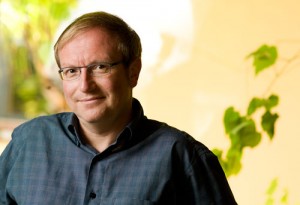 The French Ministry of Education has named ARON RODRIGUE, a professor of history and director of the Stanford Humanities Center, a Knight (Chevalier) of the Ordre des Palmes Académiques.
The French Ministry of Education has named ARON RODRIGUE, a professor of history and director of the Stanford Humanities Center, a Knight (Chevalier) of the Ordre des Palmes Académiques.
The Ordre des Palmes Académiques (Order of Academic Palms) is an honorific order of France that recognizes significant accomplishments in the areas of teaching, research and scholarship. Non-French citizens may also receive an award for contributing to the expansion of French education, language and culture throughout the world.
Established by NAPOLEON BONAPARTE in 1808, the distinction became a decoration under Emperor Napoleon III in 1866 and is the oldest non-military French decoration.
Rodrigue, whose research and publications focus on the spread of French language among 19th- and 20th-century Jewish communities in Muslim lands, said he was simultaneously “pleased, surprised and honored” when he learned about the award.
Raised in Istanbul, Rodrigue said his research probably had its origins in his curiosity about why “French was the language of culture” that he encountered in his youth. His scholarly pursuits led him into an investigation of the Alliance Israélite Universelle, a French-Jewish educational system that established schools across the Middle East.
As director of the Humanities Center, Rodrigue founded the International Visitors program, which has invited several French scholars to campus. Years before he became director, Rodrigue co-founded the center’s French Culture Workshop, in which academics from a wide array of disciplines examine questions relevant to French culture and society.
Rodrigue will join three other Stanford scholars who have been recipients of Order of Academic Palms honors, history Professor KEITH BAKER, Clayman Institute scholar MARILYN YALOM and CHARBEL FARHAT, professor of aeronautics and astronautics and of mechanical engineering.
The award and accompanying medallion will be conferred in a ceremony administered by the French Consulate.
—CORRIE GOLDMAN, the Humanities at Stanford